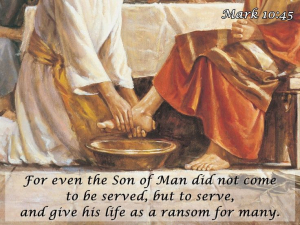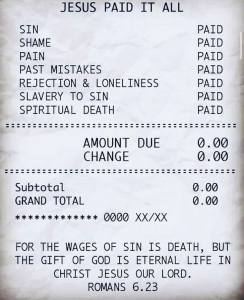By Dr. Nicholas Schaser
What does a half-shekel in Exodus have to do with Jesus’ death on the cross?
What is the Hebrew meaning of “ransom”?
And how does Yeshua’s sacrifice echo the Torah?

Jesus as a Ransom for Many
In Mark 10:45 and Matthew 20:28, Jesus tells his disciples, “For even the Son of Man came not to be served but to serve, and to give his life as a ransom for many.” When Jesus calls himself a “ransom,” he’s referring to a powerful idea from the Torah—the system of atonement. In these verses, Jesus is offering his own life as a payment in place of others.

Sin as Spiritual Debt
In first-century Jewish thinking, sin was seen as a kind of debt owed to God. That’s why, in the Lord’s Prayer, Jesus says, “Forgive us our debts, as we have forgiven our debtors” (Matthew 6:12). He’s not talking about money, but about the moral and spiritual debt created by sin. When Jesus gives his life (Greek: psuchē) as a ransom, he’s paying off that debt on behalf of others.

Ransom in the Torah
The word “ransom” (Greek: lūtron) has roots in the Torah. In Exodus 30, God commands that every Israelite counted in a census must pay a small amount of money “to make atonement for their lives.” In the Greek version of the Torah (the Septuagint), this payment is called a “ransom for his life” (lūtron tēs psuchēs). It was meant to cover the cost of one’s life symbolically before God.

Jesus Fulfills the Ransom Idea
In Exodus, this ransom was a half-shekel. But in the Gospels, Jesus offers his entire life as the ransom. The similar wording between Exodus and the Gospels suggests that Jesus is doing something much greater: he is giving his life to God as a final and complete atonement for sin—not just for one person, but for many.
This idea ties into what the angel said at Jesus’ birth: “He will save his people from their sins” (Matthew 1:21). By giving his life as a ransom, Jesus cancels the spiritual debt of his people, just like the atonement system in the Torah, but in a fuller, deeper way.


